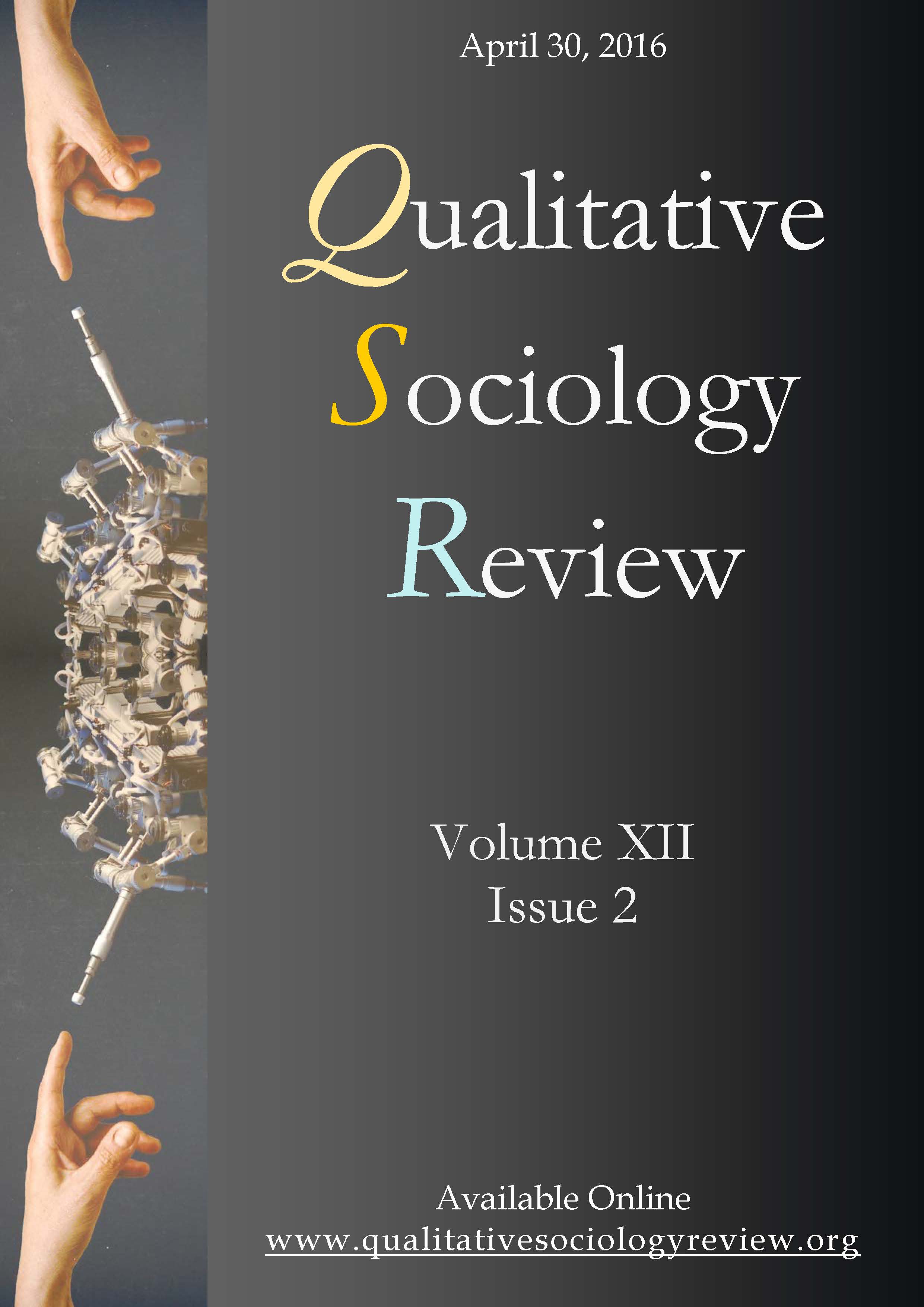Healthcare Innovation—The Epital: A Living Lab in the Intersection Between the Informal and Formal Structures
DOI:
https://doi.org/10.18778/1733-8077.12.2.04Keywords:
Healthcare, Healthcare Innovation, Living Labs, Laboratory, EpitalAbstract
This study explores an alternative healthcare innovation project in its making using ethnographic research methods. The project is a confined space—a living lab—that cannot fully be described or explained in the same way we normally understand set-ups for healthcare innovation. By creating its own space, in the intersection between formal and informal structures, it draws our attention to a new way of organizing healthcare innovation.
Taking an ethnographic research approach, it is suggested how a concept of a bubble can be used to describe the nature of the living lab as a partial and flexible object that constitutes multiple future possibilities. The concept of the bubble challenges the notion of the living lab as a cheese bell, which is the term used by the field participants, inspired by Clayton Christensen. Bringing in theoretical points from Bruno Latour regarding laboratories, this study explores the materiality of the laboratory and its political nature.
The study contributes to the debate on innovation in healthcare and especially fuses to the discussion of how to organize healthcare innovation. It argues that we need to pay attention to new kinds of living labs—like the one introduced in this study.
Downloads
References
Blok, Anders and Torben E. Jensen. 2009. Bruno Latour. Hybride tanker i en hybrid verden. København: Hans Reitzel.
Google Scholar
Brown, Steven D. 2002. “Michel Serres: Science, Translation, and the Logic of the Parasite.” Theory Culture Society 19(3):1-27.
Google Scholar
DOI: https://doi.org/10.1177/0263276402019003001
Brown, Steven D. 2013. “In Praise of the Parasite: The Dark Organizational Theory of Michel Serres.” Informática na Educação: teoria e prática 16(1):83-100.
Google Scholar
DOI: https://doi.org/10.22456/1982-1654.36928
Christensen, Clayton M. 2003. The Innovator’s Dilemma: The Revolutionary Book That Will Change the Way You Do Business. New York: HarperBusiness.
Google Scholar
Christensen, Clayton M. 2009. The Innovator’s Prescription: A Disruptive Solution for Health Care. New York: The McGraw Hill.
Google Scholar
DEA. 2013. “Fra forskning til faktura.” Retrieved February 28, 2016 http://dea.nu/publikationer/forskning-faktura
Google Scholar
Den Nationale Videnskabsetiske Komité. 2013. “Guidelines About Notification.” Retrieved February 28, 2016 http://www.dnvk.dk/English/guidelinesaboutnotification.aspx
Google Scholar
eHealth Task Force. 2012. eHealth Task Force Report – Redesigning Health in Europe for 2020. Luxembourg: Publications Office of the European Union.
Google Scholar
Emerson, Robert M., Rachel I. Fretz, and Linda L. Shaw. 1995. Writing Ethnographic Field Notes. Chicago: University of Chicago Press.
Google Scholar
DOI: https://doi.org/10.7208/chicago/9780226206851.001.0001
Hansen, Birgitte G. 2011. Adapting in the Knowledge Economy: Lateral Strategies for Scientists and Those Who Study Them. PhD Series 22. Copenhagen Business School.
Google Scholar
Jensen, Casper B. 2010. Ontologies for Developing Things: Making Health Care Futures Through Technology. Rotterdam: Sense.
Google Scholar
Kierkegaard, Patrick. 2013. “eHealth in Denmark: A Case Study.” Journal of Medical Systems 37(6):9991.
Google Scholar
DOI: https://doi.org/10.1007/s10916-013-9991-y
Kleinman, Daniel L. 2003. Impure Cultures: University Biology and the World of Commerce. Science and Technology in Society. Madison: University of Wisconsin Press.
Google Scholar
Latour, Bruno. 1983. “Give Me a Laboratory and I Will Raise the World.” Pp. 257-274 in The Science Studies Reader, edited by M. Biagoli. London, New York: Routledge.
Google Scholar
Latour, Bruno. 1987. Science in Action: How to Follow Scientists and Engineers Through Society. Cambridge, MA: Harvard University Press.
Google Scholar
Latour, Bruno. 1988. The Pasteurization of France. London: Harvard University Press.
Google Scholar
Latour, Bruno. 1991. “Technology Is Society Made Durable.” Pp. 103- 131 in A Sociology of Monsters: Essays on Power, Technology, and Domination, edited by J. Law. London: Routledge.
Google Scholar
DOI: https://doi.org/10.1111/j.1467-954X.1990.tb03350.x
Latour, Bruno. 2005. Reassembling the Social: An Introduction to Actor- Network Theory. New York: Oxford University Press.
Google Scholar
Latour, Bruno. 2008. En ny sociologi for et nyt samfund – introduktion til aktørnetvæk-teori. København: Akademisk Forlag.
Google Scholar
Marcus, George E. 1995. “Ethnography in/of the World System: The Emergence of Multi-Sited Ethnography.” Annual Review of Anthropology 24:95-117.
Google Scholar
DOI: https://doi.org/10.1146/annurev.an.24.100195.000523
May, Carl R. et al. 2009. “Development of a Theory of Implementation and Integration: Normalization Process Theory.” Implementation Science 4:29.
Google Scholar
DOI: https://doi.org/10.1186/1748-5908-4-29
Phanareth, Klaus et al. 2013. “Epital Health – A Disruptive and Research Based Approach to Service Transformation of Health Care Systems.” International Journal of Integrated Care 13:1-2.
Google Scholar
DOI: https://doi.org/10.5334/ijic.1419
Strathern, Marilyn. 1999. Property, Substance, and Effect: Anthropological Essays on Persons and Things. New Jersey: The Athlone Press.
Google Scholar
Timson, George. n.d. “The History of the Hardhats.” Retrieved September 17, 2014 http://www.hardhats.org/history/hardhats.html
Google Scholar
Downloads
Published
How to Cite
Issue
Section
License

This work is licensed under a Creative Commons Attribution-NonCommercial-NoDerivatives 4.0 International License.











